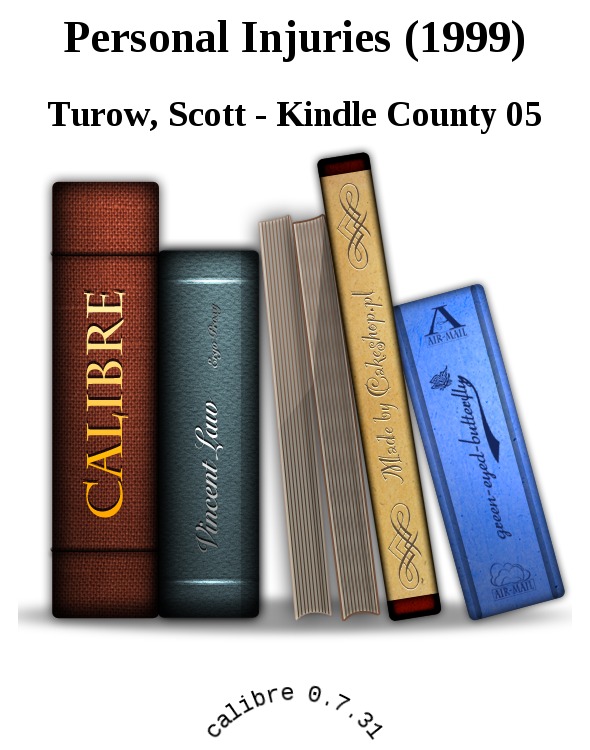
Personal Injuries PDF
Preview Personal Injuries
Scott Turow has always pushed himself beyond the expectations of readers and critics. In Presumed Innocent (1987), he introduced fictional Kindle County and ushered in the era that spawned such mega-authors as John Grisham, Richard North Patterson, and David Baldacci. In Personal Injuries, Turow continues to innovate on legal fiction, but his achievement this time is not gained through clever plot twists (though there are several) or intense legal action (though there is much of that too). The achievement of mastery this time is via exquisitely drawn, Faulknerian characters--attorney Robbie Feaver, agent Evon Miller, U.S. Attorney Stan Sennett, and Justice Brendan Tuohey--whose lives become the driving mystery at the core of the book.
The novel begins with Robbie Feaver seeking counsel from the narrator, attorney George Mason. For years, Feaver has been bribing several judges in the Common Law Claims Division to win favorable judgments. Now that U.S. Attorney Stan Sennett has uncovered Feaver's dirty little secret, he wants to use Feaver to get at the man he believes to be at the center of all the legal corruption in the metropolitan area, Brendan Tuohey, Presiding Judge of Common Law Claims and heir apparent to the Chief Justice of Kindle County Superior Court. With Mason as an advisor, Robbie assists Sennett and his team of FBI undercover agents in crafting a massive sting operation that involves an FBI-manufactured lawyer named "James McManis," a cast of fictional clients, and "Evon Miller"--a deep cover agent (and former Olympic athlete)--who poses as Robbie's paralegal and paramour.
With a skill rarely found in genre fiction, Turow composes his narrative with variations on several recurring themes. The novel ripples with paranoia as the FBI enshrouds the legal community of Kindle County in a web of tapped phones, concealed cameras, and wired spies.
At the center of indirection sit Robbie and Evon. The pair dance through an elegant game of erotically-charged hide and seek: Robbie the practiced liar and former actor, and Evon, the agent whose whole life must remain a fiction if she is to survive. At their best, legal thrillers leave readers confronting the core of their values and perceptions of legal and moral rectitude. Personal Injuries is the legal thriller at its very best. --Patrick O'Kelley
From Publishers WeeklyUnlike most of his fellow lawyer-novelists, Turow has always been more interested in character than plot, and in Robbie Feaver, a lawyer on the make who ends up fighting for his life, he has created his richest and most compelling figure yet. For years, Robbie has been paying off judges and squirreling away part of the riches he earns as a highly successful trial lawyer. When the IRS happens upon the money trail, and a top prosecutor leans on him to turn state's evidence and finger some of the corrupt justices, Robbie calls on George Mason, veteran Kindle County lawyer, to represent him and win the best deal he can. A complicating element in the case is Evon Miller, Mormon-born FBI agent in deep undercover, who is assigned to watch Feaver and finds herself, against her better inclinations, drawn to himAfor Feaver is a character of almost Shakespearean contradictions. A charming, brash womanizer who nevertheless shows superhuman reserves of love and patience to his dying wife at home, he is always several jumps ahead of the prosecutors, the FBI and the reader, winning sympathy, even admiration, where there should be none. This patient account is fascinatingly detailed in the ways of the law and the justice system, of how Robbie zeroes in on the biggest target of all, only to be trumped at the last moment. It is also a deeply understanding look, in its portrait of Evon, of the motives that drive a solitary woman into police work (Thomas Harris's Clarice seems shallow by comparison). There are some remarkable narrative strategiesATurow deftly alternates a first-person and omniscient-author point of view, for exampleAbut readers will not be concerned with technical details, only with the rare revelation of a paradoxical personality so compelling he makes the very adroit plot almost superfluous. 750,000 first printing; $500,000 ad/promo; first serial to Playboy; BOMC main selection; QPB selection; 9-city author tour; paperback rights to Warner; simultaneous Random House audio. (Oct.)
Copyright 1999 Reed Business Information, Inc.
